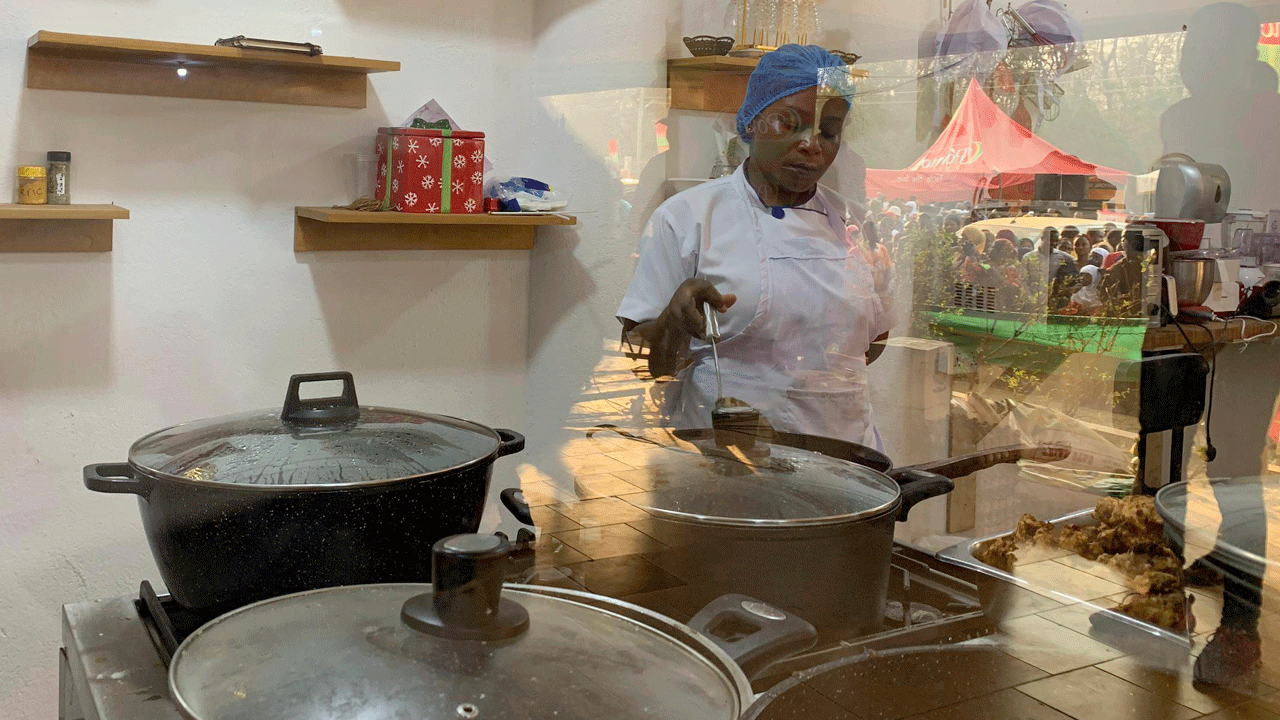**Ghanaian Chef Attempts World Record Cook-a-thon With Banku and Jollof Rice**
Ghanian Chef, Failatu Abdul-Razak, has set out on an ambitious journey to break the world record for a cook-a-thon by preparing traditional Ghanaian dishes, including the signature banku and jollof rice, on live television in a marathon cooking session. Since New Year’s Day, Abdul-Razak has been tirelessly cooking at a hotel in the northern Ghanaian city of Tamale, with the goal of surpassing the current Guinness World Record of 119 hours and 57 minutes held by Irish chef Alan Fisher.
**A Nation’s Celebration**
As the chef’s cooking endeavor surpasses over 110 hours, the entire nation of Ghana has rallied behind her, celebrating her determination and commitment to showcasing the rich culinary heritage of the region. Isaac Sackey, the president of the Chefs’ Association of Ghana, hailed Abdul-Razak for putting the nation on the global culinary map, emphasizing the significance of honoring her outstanding feat.
**The Culinary Frenzy in West Africa**
Abdul-Razak’s world record attempt comes in the wake of a culinary frenzy in West Africa, triggered by Nigerian chef Hilda Baci claiming the world cooking record last May with a 100-hour performance before being dethroned by Fisher. This passionate pursuit of world records in the culinary domain has captivated the region, highlighting the profound dedication and artistry of African chefs.
**Eager Anticipation for Official Confirmation**
Despite the fervor surrounding Abdul-Razak’s cook-a-thon, the Guinness World Record organization has yet to publicly acknowledge her attempt, ensuring any confirmation of the feat would come after careful scrutiny. As the clock inches towards the 120-hour mark, the excitement continues to mount at the Modern City Hotel in Tamale, where the onlookers, including celebrities, government leaders, and hundreds of ordinary people, revel in the jubilant atmosphere and relish the delectable dishes being prepared by the determined chef.
**Unwavering Support and Encouragement**
Even the Vice President of Ghana, Mahamudu Bawumia, took to Facebook to express his support for Abdul-Razak’s monumental endeavor, donating 30,000 Ghana Cedis ($2,564) to bolster her spirits. This overwhelming support underscores the significance of her undertaking as a representation of national pride and culinary excellence.
**The Mental and Physical Strain**
The sheer magnitude of Abdul-Razak’s culinary marathon raises concerns about the potential mental and physical toll on the chef. Under the stringent guidelines, she is only allowed five-minute breaks every hour or an accumulated one hour after a stretch of 12 hours, showcasing the rigorous and demanding nature of the endeavor. The psychological strain associated with such protracted efforts was evident when Ghanaian Afua Asantewaa Owusu Aduonum had to cease her attempt to break the world record for the longest time spent singing due to signs of mental stress.
**The Psychology of World Record Seekers**
Annabella Osei-Tutu, an associate professor of psychology at the University of Ghana, sheds light on the psychology of individuals striving for world records, emphasizing the role of temporary excitement and adrenaline in fueling their endeavors. However, she also highlights the inevitable toll on their bodies following such intense episodes, underscoring the resilience and determination required to pursue such extraordinary feats.
**Conclusion**
Failatu Abdul-Razak’s relentless determination to break the world record for marathon cooking with traditional Ghanaian dishes exemplifies the indomitable spirit and unwavering commitment of the nation’s culinary experts. Her pursuit not only symbolizes a personal achievement but also resonates as a manifestation of Ghana’s rich culinary heritage, bringing immense pride and celebration to the entire nation. As the world eagerly awaits the official confirmation of her feat, Abdul-Razak’s extraordinary endeavor serves as an inspiration, showcasing the extraordinary prowess and resilience of African chefs on the global stage.


